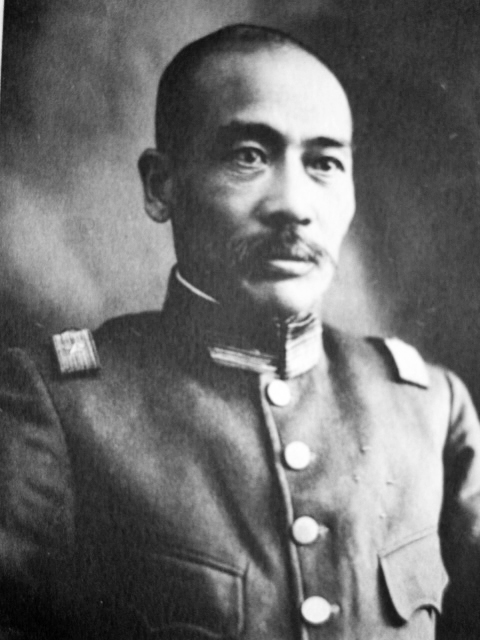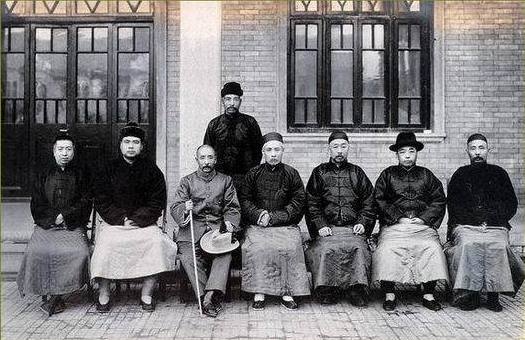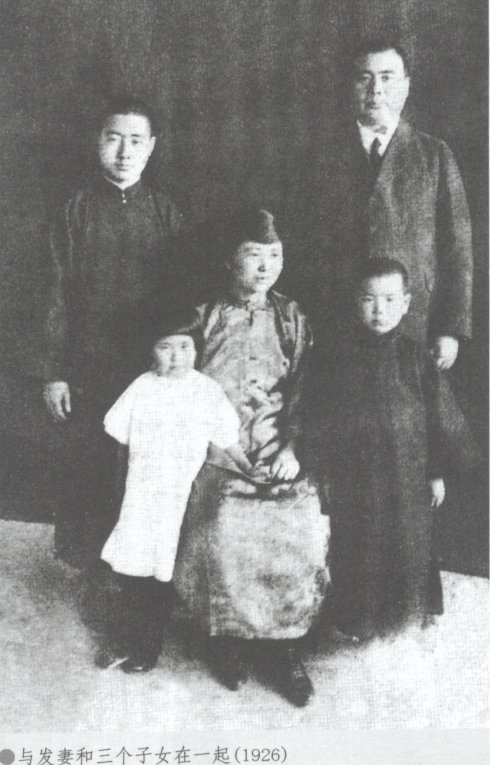|
Guominjun
The Guominjun (), a.k.a. Nationalist Army, KMC, also called the Northwest Army (西北軍) or People's Army, refers to the military faction founded by Feng Yuxiang, Hu Jingyi and Sun Yue during China's Warlord Era. History The Guominjun was formed when Feng betrayed the Zhili clique during the Second Zhili–Fengtian War with the Fengtian clique in 1924. The Guominjun occupied Beijing, captured Zhili leader Cao Kun and expelled former Qing dynasty emperor Puyi from the Forbidden City. In late 1925, Fengtian general Guo Songling defected to the KMC; this sparked the Anti-Fengtian War against Zhang Zuolin. The Guominjun was incorporated into the Kuomintang's National Revolutionary Army as the "Second Collective Army" in 1928 during the Northern Expedition, and fought alongside the KMT to defeat Fengtian forces (National Pacification Army) and capture Beijing. In 1929, Feng grew increasingly dissatisfied with Chiang Kai-shek's regime; the Guominjun launched a full rebe ... [...More Info...] [...Related Items...] OR: [Wikipedia] [Google] [Baidu] |
Anti-Fengtian War
The Anti-Fengtian War () was the last major civil war within the Republic of China's northern Beiyang government prior to the Northern Expedition. It lasted from November 1925 to April 1926 and was waged by the Guominjun against the Fengtian clique and their Zhili clique allies. The war ended with the defeat of the Guominjun and the end of the provisional executive government. The war is also known as either Guominjun-Fengtian War (Guo Feng Zhan Zheng, 国奉战争), or the Third Zhili–Fengtian War (Di San Ci Zhi Feng Zhan Zheng, 第三次直奉战争). Cause The result of the Second Zhili–Fengtian War had led to the creation of a provisional executive government in Beijing in November 1924, where an informal triumvirate formed by Fengtian's Zhang Zuolin, the Guominjun's Feng Yuxiang and the Anhui clique's Duan Qirui had ruled. Duan's position as head of state was merely as a figurehead, however, as his clique had been almost destroyed. His small army of bodyguards operated s ... [...More Info...] [...Related Items...] OR: [Wikipedia] [Google] [Baidu] |
Northern Expedition
The Northern Expedition was a military campaign launched by the National Revolutionary Army (NRA) of the Kuomintang (KMT), also known as the "Chinese Nationalist Party", against the Beiyang government and other regional warlords in 1926. The purpose of the campaign was to reunify China, which had become fragmented in the aftermath of the Revolution of 1911. The expedition was led by Generalissimo Chiang Kai-shek, and was divided into two phases. The first phase ended in a 1927 political split between two factions of the KMT: the right-leaning Nanjing faction, led by Chiang, and the left-leaning faction in Wuhan, led by Wang Jingwei. The split was partially motivated by Chiang's Shanghai Massacre of Communists within the KMT, which marked the end of the First United Front. In an effort to mend this schism, Chiang Kai-shek stepped down as the commander of the NRA in August 1927, and went into exile in Japan. The second phase of the Expedition began in January 1928, when Chiang ... [...More Info...] [...Related Items...] OR: [Wikipedia] [Google] [Baidu] |
National Pacification Army
The National Pacification Army (NPA), also known as the Anguojun or Ankuochun (), was a warlord coalition led by Fengtian clique General Zhang Zuolin, and was the military arm of the Beiyang government of the Republic of China. The army was formed in November 1926 after the Fengtian victory in the Anti-Fengtian War, the NPA was tasked with countering the advance of the Kuomintang (KMT)-aligned National Revolutionary Army (NRA) of Chiang Kai-shek, who had launched the Northern Expedition in June 1926. The NPA also included Zhili clique generals, such as Sun Chuanfang. The NPA suffered a series of serious military defeats inflicted by Chiang and his warlord allies, including Feng Yuxiang, Li Zongren and Yan Xishan. On the southern front, the NPA was pushed back from Jiangsu and Henan after fierce fighting against the Guominjun and the NRA. On the western front, they fought Shanxi forces under Yan Xishan. Following these setbacks, a conference of NPA leaders in June 1927 establi ... [...More Info...] [...Related Items...] OR: [Wikipedia] [Google] [Baidu] |
Sun Yue (warlord)
Sun Yue (; 1878–1928) was a warlord member of the Guominjun and governor at various times of Hebei, Henan and Shaanxi. Sun Yue was born in 1878 in Gaoyang, Hebei, China. After Feng Yuxiang led his army to overthrow Cao Kun in the Beijing coup, Sun was made civil governor of Henan on 7 November 1924, a post he held until 29 August 1925. The following day he was made General in command of converting the Beijing gendarmerie into the Third Brigade of the Gominjun. He next was made the Guominjun military governor of Shaanxi from 29 August 1925 to 25 December 1925. From that date Sun was made the Guominjun military and civil governor of Zhili until 21 March 1926. Lastly he was the Guominjun civil governor of Shaanxi from 11 April 1926 to October 1927, when the Gomunjun joined Chiang Kai-shek in the Northern Expedition, and he was replaced by Song Zheyuan as its first Chairman of the province. Sun died on 27 May 1928 in Shanghai Shanghai (; , , Standard Mandarin pronunciati ... [...More Info...] [...Related Items...] OR: [Wikipedia] [Google] [Baidu] |
Beijing Coup
The Beijing Coup () refers to the October 1924 ''coup d'état'' by Feng Yuxiang against Chinese President Cao Kun, leader of the Zhili warlord faction. Feng called it the Capital Revolution (). The coup occurred at a crucial moment in the Second Zhili–Fengtian War and allowed the pro-Japanese Fengtian clique to defeat the previously dominant Zhili clique. Followed by a brief period of liberalization under Huang Fu, on November 23 this government was replaced by a conservative, pro-Japanese government led by Duan Qirui. The coup alienated many liberal Chinese from the Beijing government. Events In 1923 Cao Kun became president by bribing the National Assembly. His Zhili clique, whose military was commanded by Wu Peifu, had already established itself as the dominant military force in China through a succession of resounding military victories. However, Cao was not satisfied with being just a strongman and wished the prestige of being officially titled head of state. After ousting ... [...More Info...] [...Related Items...] OR: [Wikipedia] [Google] [Baidu] |
Central Plains War
The Central Plains War () was a series of military campaigns in 1929 and 1930 that constituted a Chinese civil war between the Nationalist Kuomintang government in Nanjing led by Generalissimo Chiang Kai-shek and several regional military commanders and warlords who were former allies of Chiang. After the Northern Expedition ended in 1928, Yan Xishan, Feng Yuxiang, Li Zongren and Zhang Fakui broke off relations with Chiang shortly after a demilitarization conference in 1929, and together they formed an anti-Chiang coalition to openly challenge the legitimacy of the Nanjing government. The war was the largest conflict in the Warlord Era, fought across Henan, Shandong, Anhui and other areas of the Central Plains in China, involving 300,000 soldiers from Nanjing and 700,000 soldiers from the coalition. Background Rise of Chiang Kai-shek Compared to other senior party officials like Hu Hanmin and Wang Jingwei, the political status of Chiang Kai-shek in the Kuomintang (KMT) was ... [...More Info...] [...Related Items...] OR: [Wikipedia] [Google] [Baidu] |
Guo Songling
Guo Songling () (1883 – 24 December 1925) was an important general of the Manchurian Fengtian clique warlord army led by Zhang Zuolin during the Chinese Warlord Era. A republican sympathiser who briefly served under Sun Yat-Sen, he was a teacher of and an important influence on Zhang Zuolin's son, Zhang Xueliang. Citing desire to avoid civil war, he led a three-month rebellion against Zhang Zuolin which led to his defeat and execution. Youth and formative years Guo Songling was born in 1883 in a village on the outskirts of Mukden, the capital of Fengtian Province, Qing China, which is modern day Shengyang, with a traditional ancestral hometown of Taiyuan in Central China. In 1905, the Viceroy of Manchuria Zhao Erxun set up the Fengtian Primary Army School, to which 22 year old Guo Songling was admitted. On high marks, he was recommended the following year to enter the Baoding Military Academy, Northern China's premier military academy. In 1907, he graduated and joined t ... [...More Info...] [...Related Items...] OR: [Wikipedia] [Google] [Baidu] |
Feng Yuxiang
Feng Yuxiang (; ; 6 November 1882 – 1 September 1948), courtesy name Huanzhang (焕章), was a warlord and a leader of the Republic of China from Chaohu, Anhui. He served as Vice Premier of the Republic of China from 1928 to 1930. He was also known as the "Christian General" for his zeal to convert his troops and the "Traitorous General" for his penchant to break with the establishment. In 1911 he was an officer in the ranks of Yuan Shikai's Beiyang Army but joined forces with revolutionaries against the Qing dynasty. He rose to high rank within Wu Peifu's Zhili warlord faction but launched the Beijing Coup in 1924 that knocked Zhili out of power and brought Sun Yat-sen to Beijing. He joined the Nationalist Party (KMT), supported the Northern Expedition and became blood brothers with Chiang Kai-shek, but resisted Chiang's consolidation of power in the Central Plains War and broke with him again in resisting Japanese incursions in 1933. He spent his later years supporti ... [...More Info...] [...Related Items...] OR: [Wikipedia] [Google] [Baidu] |
Hu Jingyi
Hu Jingyi 胡景翼 (1892–1925), Chinese general, warlord and military governor of Henan (1924–25) during the Warlord Era of China. Hu Jingyi was born on 4 June 1892, Fuping County, Shaanxi. He joined the Chinese Revolutionary Alliance in 1910. Following the Wuchang Uprising in 1911 he led a revolt in Shaanxi. He became a general of Kuomintang forces during the "Second Revolution" against Yuan Shikai's dictatorship in 1913. He held several posts in the Shaanxi army over the following decades. During the Second Zhili–Fengtian War in the autumn of 1924, Feng Yuxiang betrayed the Zhili clique when he led his army from the battlefield to execute the Beijing coup, detaining its leader President Cao Kun, and reorganized his forces as the Guominjun. Hu was named deputy commander-in-chief and the commander of the 3rd Army as well as governor of Henan. The Soviets decided to assist Feng with advisers and assistance in arming the Guominjun, with the intent of forming another movem ... [...More Info...] [...Related Items...] OR: [Wikipedia] [Google] [Baidu] |
Zhang Zuolin
Zhang Zuolin (; March 19, 1875 June 4, 1928), courtesy name Yuting (雨亭), nicknamed Zhang Laogang (張老疙瘩), was an influential Chinese bandit, soldier, and warlord during the Warlord Era in China. The warlord of Manchuria from 1916 to 1928, and the military dictator of the Republic of China in 1927 and 1928, he rose from banditry to power and influence. Backed by Japan, Zhang successfully influenced politics in the Republic of China during the early 1920s. In the fall of 1924, during the Second Zhili–Fengtian War, he invaded and gained control of Peking, including the internationally recognized government, in April 1926. His appointment as grand marshal of the Republic of China in June 1927 represented the height of his success, but was quickly followed by defeat: the economy of Manchuria, the basis of his power, was overtaxed by his adventurism and collapsed in the winter of 1927; and he was defeated by the National Revolutionary Army of the Kuomintang under Gener ... [...More Info...] [...Related Items...] OR: [Wikipedia] [Google] [Baidu] |
Fengtian Clique
The Fengtian clique () was one of several opposing military factions that constituted the early Republic of China during its Warlord Era. It was named after Fengtian Province (now Liaoning), and operated from a territorial base comprising the three northeastern provinces that made up Manchuria.Fengtien Clique '''', 3rd Edition (1970-1979). Warlord , known as the "Old Marshal," led the clique with support from . Foll ... [...More Info...] [...Related Items...] OR: [Wikipedia] [Google] [Baidu] |
Second Zhili–Fengtian War
The Second Zhili–Fengtian War (Second Chihli-Fengtien War; ) of 1924 was a conflict between the Japanese-backed Fengtian clique based in Manchuria, and the more liberal Zhili clique controlling Beijing and backed by Anglo-American business interests. The war is considered the most significant in China's Warlord era, with the Beijing coup by Christian warlord Feng Yuxiang leading to the overall defeat of the Zhili clique. During the war the two cliques fought one large battle near Tianjin in October 1924, as well as a number of smaller skirmishes and sieges. Afterwards, both Feng and Zhang Zuolin, the latter being ruler of the Fengtian clique, appointed Duan Qirui as a figurehead prime minister. In south and central China, more liberal Chinese were dismayed by the Fengtian's advance and by the resulting power vacuum. A wave of protests followed. The war also distracted the northern warlords from the Soviet-backed Nationalists based in the southern province of Guangdong, allowing ... [...More Info...] [...Related Items...] OR: [Wikipedia] [Google] [Baidu] |







